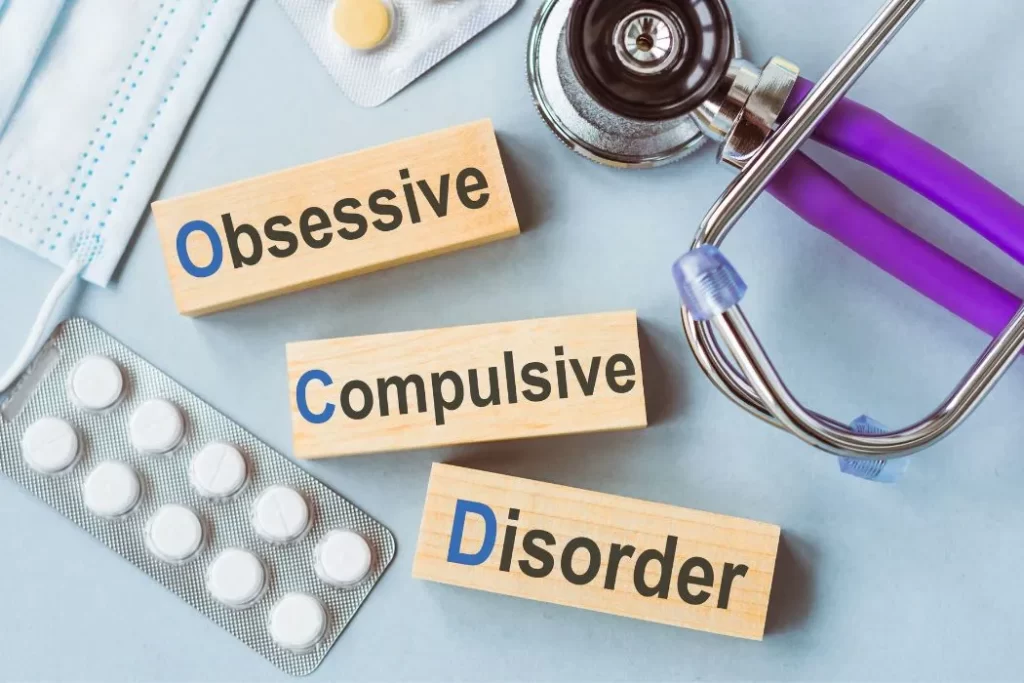Obsessive Compulsive Disorder (OCD) is a complex mental health condition affecting millions globally, including a growing number of individuals in Bangladesh. Known for causing persistent and unwanted thoughts and repetitive behaviors, OCD can significantly impact an individual’s life. Fortunately, with specialized treatment and proper care, those affected can manage symptoms effectively. Omega Point, a premier rehab center in Dhaka, Bangladesh, offers comprehensive treatment options tailored to support individuals in their recovery journey.
What is Obsessive Compulsive Disorder?
OCD is an anxiety disorder characterized by recurring, intrusive thoughts (obsessions) and ritualistic behaviors (compulsions) aimed at reducing the anxiety caused by these thoughts. Unlike fleeting worries or concerns, OCD symptoms persist over time and can interfere with daily functioning. By understanding OCD in depth, individuals and families can take proactive steps toward finding relief.
Characteristics of Obsessive Compulsive Disorder
Individuals with OCD often experience a cycle of distressing thoughts and repetitive actions. Some common symptoms of OCD include:
- Obsessions: Intrusive, unwanted thoughts or fears (e.g., fear of contamination, need for symmetry).
- Compulsions: Repetitive behaviors or rituals performed to alleviate obsession-related anxiety (e.g., excessive washing, checking locks).
The persistence of these symptoms differentiates OCD from ordinary habits or preferences, often causing significant emotional and mental strain.
Types of Obsessive Compulsive Disorder
There are several subtypes of OCD, each defined by specific patterns of obsessions and compulsions:
- Contamination and Cleaning – Fear of germs leading to excessive washing.
- Checking – Frequent checking of doors, appliances, or safety concerns.
- Symmetry and Ordering – Need for items to be organized in a specific way.
- Hoarding – Difficulty discarding items, even with little or no value.
- Intrusive Thoughts – Disturbing mental images or thoughts, often inappropriate or violent.
Each type requires a unique therapeutic approach, making specialized treatment vital for effective management.
OCD vs. Obsessive Compulsive Personality Disorder
It’s important to differentiate OCD from Obsessive Compulsive Personality Disorder (OCPD), a separate condition. Unlike OCD, where individuals are aware of and distressed by their compulsions, people with OCPD see their behaviors as appropriate. The DSM-5 outlines these distinctions to guide accurate diagnosis and treatment, helping to avoid misdiagnosis and provide appropriate care.
Common Causes and Risk Factors
OCD is a multifaceted disorder with several contributing factors:
- Genetic Factors: Family history can increase the likelihood of developing OCD.
- Environmental Factors: Stress, trauma, or a significant life event may trigger symptoms.
- Neurological Factors: Chemical imbalances in the brain can play a role.
High-risk groups may include those with a family history of OCD, previous mental health issues, or a history of trauma.
OCD Diagnosis
Commonly, clinicians use standardized OCD tests and evaluate symptoms against the DSM-5 criteria. Accurate diagnosis is crucial for determining an effective treatment plan, making early consultation essential.
OCD Treatment Options
Effective OCD management often combines therapy with lifestyle adjustments. The primary treatment options include:
- Cognitive Behavioral Therapy (CBT): A cornerstone in OCD treatment, particularly Exposure and Response Prevention (ERP) therapy, which gradually reduces compulsive behaviors.
- Medication: Antidepressants like SSRIs are commonly prescribed and can reduce symptom severity.
- Alternative Therapies: Techniques like mindfulness, relaxation, and physical exercise may support primary treatment options.
Role of Cognitive Behavioral Therapy in OCD
CBT, particularly ERP, has proven effective in managing OCD symptoms. ERP involves exposing individuals to situations that trigger obsessions and helping them resist engaging in compulsive behaviors. This gradual exposure lessens anxiety over time, retraining the brain’s response to triggers.
Medications for OCD
While medication can be beneficial, it’s essential for patients to consult medical professionals regarding appropriate use, especially as each individual responds differently to medication.
Lifestyle Adjustments to Manage OCD
Alongside therapy and medication, lifestyle changes can significantly improve OCD symptoms:
- Mindfulness Practices: Techniques such as meditation can help in managing intrusive thoughts.
- Stress Reduction: Incorporating relaxation exercises, regular sleep, and balanced nutrition.
- Support Systems: Connecting with support groups or counseling can provide encouragement and motivation.
Challenges in Managing OCD
Individuals with OCD often face unique challenges, such as stigma and the likelihood of symptom relapses. In Bangladesh, cultural attitudes towards mental health may add additional barriers, emphasizing the need for accessible and empathetic treatment centers like Omega Point.
Omega Point’s Approach to OCD Treatment
Located in Dhaka, Bangladesh, Omega Point offers specialized and personalized OCD treatment plans. Utilizing a combination of therapy, counseling, and supportive care, Omega Point’s team of experienced professionals is dedicated to guiding patients toward recovery. Their structured environment ensures that individuals receive holistic care tailored to their specific needs.
At Omega Point, we offer specialized treatment for various addictions, including porn addiction, to help individuals regain control and improve their mental health.
Conclusion
Understanding and addressing OCD can be life-changing for those affected. By seeking treatment at Omega Point, individuals in Dhaka, Bangladesh, have access to expert guidance and support for managing OCD. Through a combination of therapies and personalized care, Omega Point’s approach fosters a positive pathway toward improved mental health and a brighter future.
FAQs on Obsessive Compulsive Disorder
Q1: What causes OCD?
OCD has multiple causes, including genetic, environmental, and neurological factors.
Q2: How is OCD diagnosed?
A professional diagnosis involves tests and assessments, often referencing DSM-5 criteria.
Q3: Is OCD curable?
OCD can be managed effectively, though not fully cured; treatment helps reduce symptoms.
Q4: What is the role of CBT in OCD treatment?
CBT, especially ERP, is effective in managing symptoms by retraining thought processes.
Q5: How can I support someone with OCD?
Encourage them to seek professional help and offer understanding and patience.

